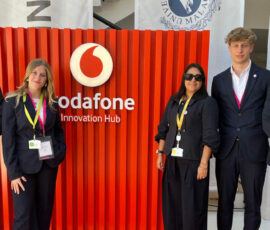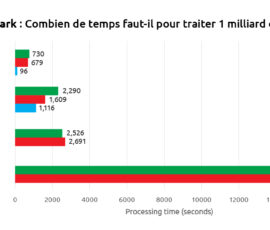Enabling organisations to adopt a global analytics culture
Coronavirus and containment have changed the lives of billions of people: Work, education, training, shopping, medical consultation, entertainment, and even sport are different… The Covid-19 crisis is drastically accelerating the shift to the world of telework and digital relationships.
Companies are adopting online work management tools, implementing collaborative processes, and changing their customer relationship interfaces. For example, Walmart has hired more than 150,000 workers for its online digital sales service, virtualising customer contact as much as sales.
In order to best serve customers, it is still useful to listen to their needs in face-to-face conversations. It becomes essential to ‘listen to your data’, to dig for the ‘gem’ that will increase customer satisfaction and profitability. This digital transformation therefore paves the way for another transformation: the analytical transformation, based on systematic data analysis.
Historically, the generation of value from data was carried out by specialised and costly profiles. It is always possible to outsource these analyses, but this leads to laborious processes because external consultants do not understand the details of your business, nor the hidden subtleties of your data. Fortunately, thanks to ‘self-service’ tools like TIMi, without code, we now have an answer to these various challenges.
Accelerating digital transformation
It is the people who are best able to understand the problem at a company who should be able to solve it. A solution such as the one we are proposing allows this, it even offers the business analyst the opportunity to go further: an answer to a problem will lead to new questions and the ‘problem hunt’ continues. The arrival of this type of tool allows organisations to adopt a global analytical culture, previously confined to the data science department, and a new reactivity. The consultant is thus able to guide companies in their digital companies in their digital migration.
It should also be noted that historically, it was necessary to invest in a very expensive infrastructure in order to have the necessary computing power to analyse large volumes of data. It was not uncommon to receive cloud invoices of over half a million euros! Modern data science tools are also changing the game in this respect. Our solution makes good use of the architecture of modern PCs (SSD and Corei7) and offers all the computing power required with a single PC. For example, a single TIMi server will transform your data faster than a Spark cluster of any size! An example: every day, a single TIMi server manipulates all the raw data of all the telecoms in Vietnam (more than 100 million phone numbers) in a few hours, to recalculate the revenues of the day.
Flexibility and speed
In a post-Covid-19 era, it is important for ‘data-workers’ to be able to perform all the data analysis they want in full autonomy, working from home, with a simple laptop, without depending on an internet connection or an unreliable ‘cloud’ and especially without generating exorbitant costs.
Moreover, solving an analytical problem is an iterative process: it is often necessary to ask 100 wrong questions before finding the right one. Thanks to its speed, TIMi makes it possible to make more mistakes more quickly, and finally reach the correct and optimal answer in the allotted time.
In 2020, it is important that companies realise the value of the data they possess. Without wanting to make a hazardous comparison, the GAFAs have become what they are precisely because of the use they have made of their data. This is a growth lever that should not be neglected for long…





